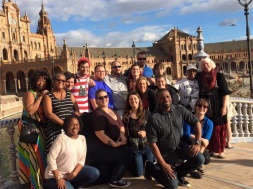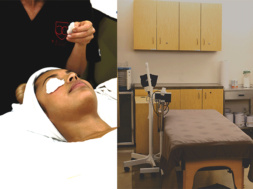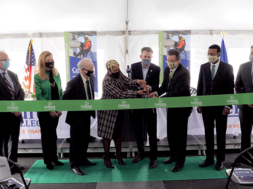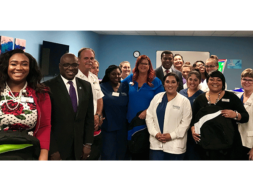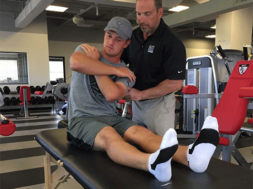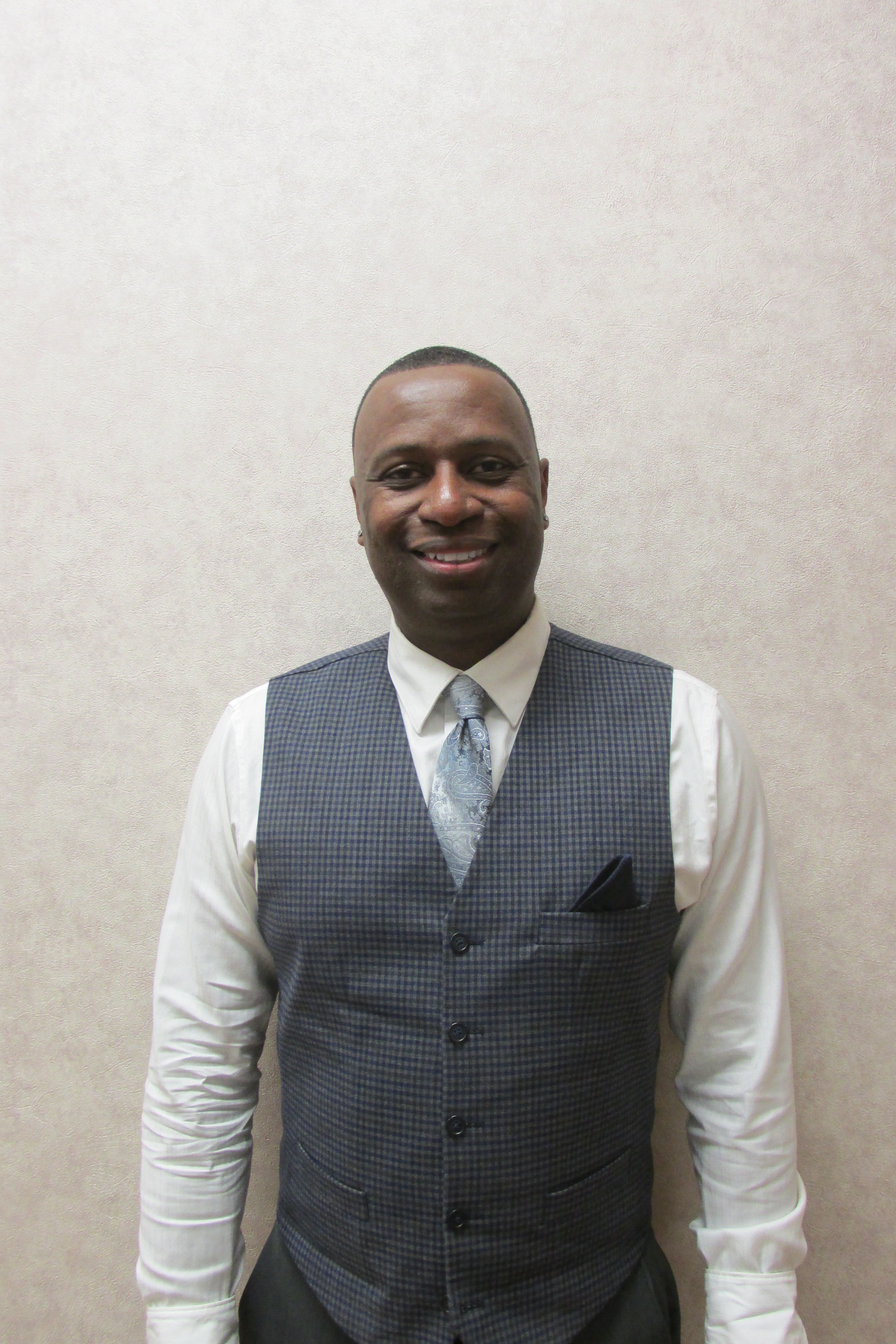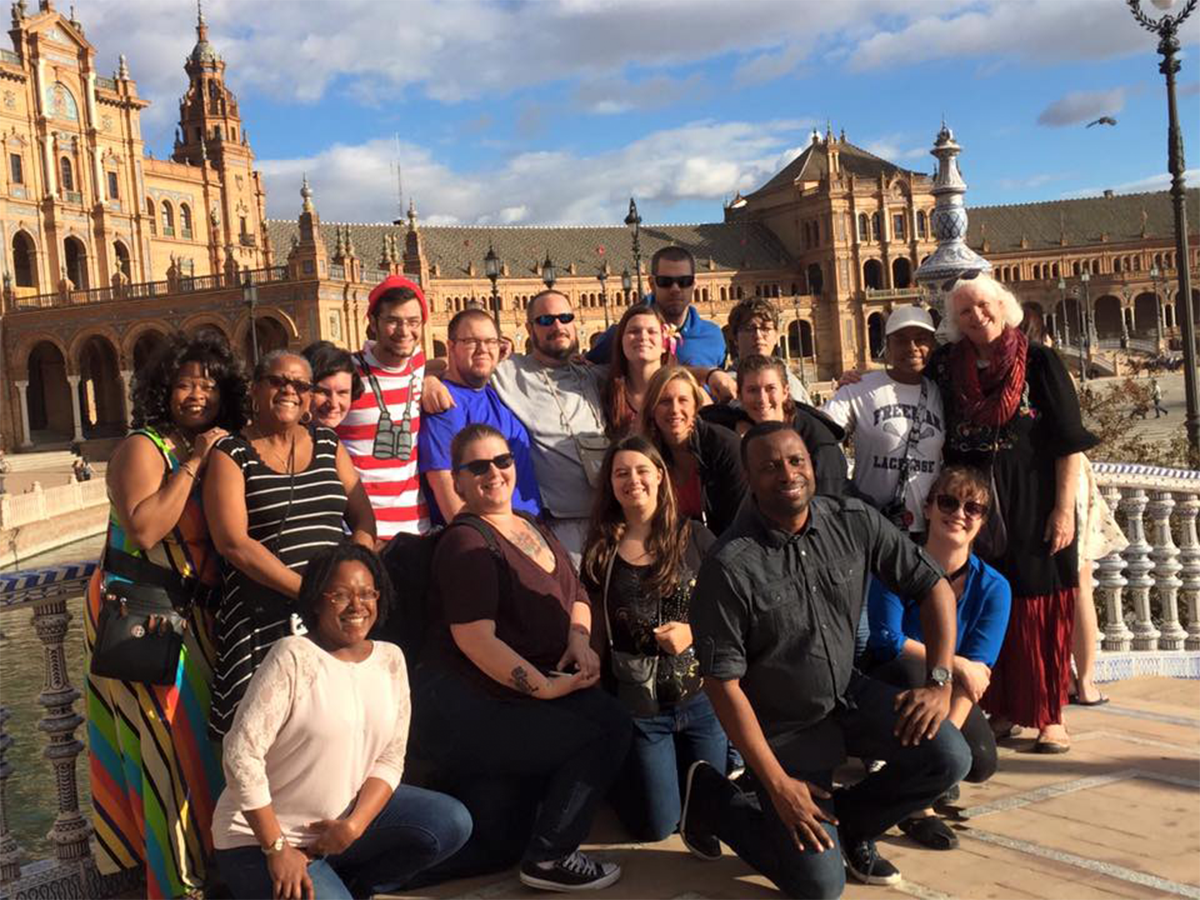
Written from an Interview with Alvin Fowlkes, Business Faculty Member and Coordinator and Director of the Study Abroad Program, ECPI University
Mention “career colleges” and most people think about proprietary schools that concentrate on preparing students for careers in fields like health care, technology or cosmetology. But career colleges that provide programs usually only offered by traditional universities, such as study abroad programs, help to make those institutions stand out from their peers.
Founded in 1966 in Norfolk, Virginia as an electronic computer programming technical school, ECPI University has grown into a regionally accredited university that offers various programs in technology, health science, nursing, business and criminal justice and culinary arts. But it differs from many other career colleges because of its study abroad program.
ECPI University started its study aboard program 16 years ago, but it’s still one of the university’s best-kept secrets, says Alvin Fowlkes, business faculty member and coordinator of their program. “Basically, it was started to give students a well-rounded view of the world,” he says. “We wanted to give them the opportunity to see other cultures and to also understand how things operate in other countries. It was an opportunity to make sure our students had the fortuity to recognize and see diversity firsthand.”
Fowlkes says he has long believed that traveling provides people with the best education on the planet.
“You’re able to see and learn things firsthand and immerse yourself in another culture. Not only do you learn about other countries and people, but you also discover so much about yourself in the process.” He says ECPI University’s Study Abroad Program allows students to see and explore the world and increases their confidence and competence through language and cultural immersion.
Their study abroad experiences last between 10-14 days, and coincide with the school’s five-week terms, he says. “Within those five weeks, 2 to 2 ½ weeks is spent studying abroad,” Fowlkes explains.
ECPI’s program allows their graduates to be well rounded, not only from a technical aspect, but also from a soft skills aspect, he says.
“When they go abroad, students learn how to deal with people in other cultures because they have to understand diversity, cultural sensitivity, manners and all those types of things that employers are looking for,” Fowlkes says. “When they put on their resumes that they participated in the study abroad program, that tells employers that they not only have a domestic view of how business works, but that they also have a world view.”
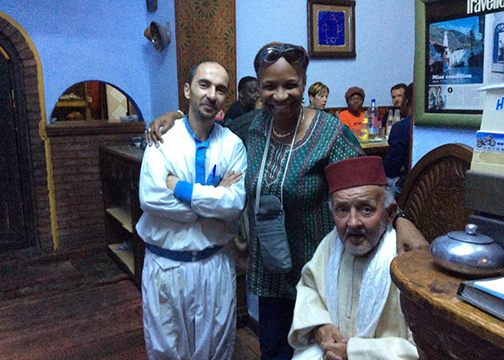 In other words, students recognize and understand differences in culture, customs and traditions. “With study abroad experience, students are able to say they have experience dealing with people from different backgrounds, from different cultures and from different communities,” he says. “It also shows employers that you have a willingness and a desire to learn and to grow.”
In other words, students recognize and understand differences in culture, customs and traditions. “With study abroad experience, students are able to say they have experience dealing with people from different backgrounds, from different cultures and from different communities,” he says. “It also shows employers that you have a willingness and a desire to learn and to grow.”
ECPI’s program is integrated with career development, and students often return and tell them their study abroad experience was the best thing they could have done for themselves. “For example, we had three students last year whose study abroad was not only the first time they were out of the country, but it was also the first time they had been on an airplane,” Fowlkes says. “This program helps people to overcome their resistance to things they may not understand in terms of culture, but also in terms of transportation. They come back with a different skill set on how to deal with other people.”
Fowlkes says the main benefit of ECPI University’s Study Abroad Program is cultural immersion for the students who participate. “They understand diversity among different cultures in different countries. But it also allows our students to have a more worldly view on business, industry and technology,” he says. “Our students are seeing things from a different perspective.”
Fowlkes says they have visited various countries and seen how the economies of those countries differ from the United States. “But it also is good for our students to develop soft skills and more of a business acumen about how business is done in other countries, as well as how technology is set up in other countries,” he says. “It helps to ground our students and help them understand some of the things that we may take for granted here that other countries don’t have. They’re able to come back with more of a perspective of how things run, how things work and … how they can be a better-rounded person in the long run.”
But the students aren’t the only ones benefitting from the study abroad program. ECPI University also benefits, he says.
“Our study abroad program has helped us differentiate our curriculum and our student body from other institutions,” Fowlkes says. “The study abroad experience not only gives students something to put on their resumes that make them stand out, but it also gives them the experience of traveling to another country with their classmates and teachers. It gives us a unique competitive advantage because we offer something that is so enriching to students.”
Their study abroad program helps to strengthen and solidify the ECPI name, he says, and helps to engage the people at the university, as well as its culture. “It helps to bond the people here; it’s a wonderful program that has been a sense of pride for the university.”
And that continues to give the university credibility, he says. “It has given a solid foundation to these students to 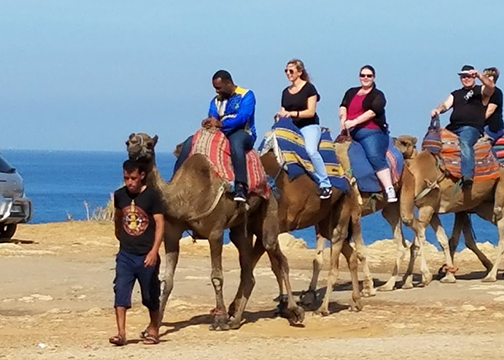 know the university takes their education and their growth and matriculation seriously, and that we put them first and foremost before anything else,” Fowlkes says. “We also try to make sure our students know they are our top priority. The study abroad program shows them that we want them to leave here and be competitive with their peers. We want them to have an advantage over their competitors so that when they go out into the workforce they bring something extra to the table that another student may not have.”
know the university takes their education and their growth and matriculation seriously, and that we put them first and foremost before anything else,” Fowlkes says. “We also try to make sure our students know they are our top priority. The study abroad program shows them that we want them to leave here and be competitive with their peers. We want them to have an advantage over their competitors so that when they go out into the workforce they bring something extra to the table that another student may not have.”
Few proprietary colleges offer study abroad programs. The ECPI program is not only open to any student enrolled at the college, but it is also open to alumni so they can continue to experience the culture of different countries even after they graduate. In addition, family members who want to have a study abroad experience can also participate, he adds.
Students participating in the study abroad program earn three credits in a “Culture and Diversity” class that counts toward students’ humanities credits, he says.
The destinations for the study abroad trips vary. Fowlkes says when he first became involved in the program, they went to Peru and he was able to see Machu Picchu, a 15th-century Inca citadel situated on a mountain ridge nearly 8,000 feet above sea level. “It is one of the Seven Wonders of the World,” he says. “Standing there you can see the Andes Mountains and the snowcaps. It was absolutely one of the most incredible experiences of my life.”
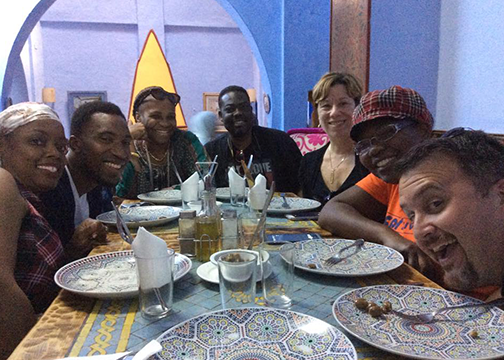 Last year, they traveled to Spain, where they saw priceless works of art by world-renowned artists in the Museo de Prado and the Reina Sofía, museums known throughout the world for their vast collection of Old World traditional and contemporary art. They visited centuries-old edifices such as the Toledo Cathedral and the Alhambra Palace. The group enjoyed a traditional tapas dinner in Madrid, went to a Flamenco show in Sevilla and walked a beach on the Mediterranean Sea in Costa del Sol, a region in the south of Spain. They even saw the gravesite of Christopher Columbus.
Last year, they traveled to Spain, where they saw priceless works of art by world-renowned artists in the Museo de Prado and the Reina Sofía, museums known throughout the world for their vast collection of Old World traditional and contemporary art. They visited centuries-old edifices such as the Toledo Cathedral and the Alhambra Palace. The group enjoyed a traditional tapas dinner in Madrid, went to a Flamenco show in Sevilla and walked a beach on the Mediterranean Sea in Costa del Sol, a region in the south of Spain. They even saw the gravesite of Christopher Columbus.
This year, they’re visiting Vietnam, Cambodia and Thailand. They have also traveled to Gibraltar and Morocco in recent years. “The program has been to every continent on the planet, with the exception of Antarctica,” Fowlkes says.
Once at their destination, they are constantly on the move. “We see a lot of historical sights,” he says. “We visit a lot of historical architecture. Since we have culinary students, we also experience cuisine. We make sure it is full cultural immersion.”
Their itinerary is set in advance, and a guide takes the group around on excursions. “Once we get to our destination, we know exactly what we are doing each day, and we hit the ground running. We go non-stop from sun up until sun down to see all the different places.”
Fowlkes says they also go to a lot of cultural events. “We’ve seen dances and gone to plays. We try to experience everything the local people do, with the intent of our students learning that this is how they do things in a particular culture. It’s a wonderful experience, but it’s very vigorous and rigorous.”
There is usually a little free time, which students generally use to get to know each other better. Since the students are getting academic credit for the trip, they must also take notes and do some coursework that goes hand-in-hand with the experience, he says.
The program takes care of accommodations and travel arrangements. “It’s a well-structured program so you know 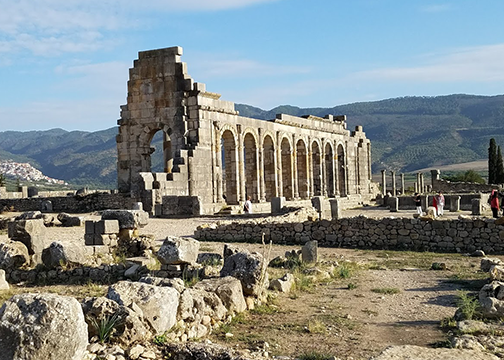 exactly where we are going, how we’re going there, when we’re doing it, where we’re staying, when we’re leaving, when you’re expected to arrive, all the way down to the customs in the country on tipping and dress,” Fowlkes says. “All of those things are covered.”
exactly where we are going, how we’re going there, when we’re doing it, where we’re staying, when we’re leaving, when you’re expected to arrive, all the way down to the customs in the country on tipping and dress,” Fowlkes says. “All of those things are covered.”
They use a vendor that provides guides for each trip. The guides are with their group the entire time they are abroad. Fowlkes says he usually travels with one or two other chaperones to make sure everyone stays safe and together. About 25 students go on each trip, and other faculty members and staff who want to travel can also go on the trips.
If a college or university is interested in doing such study abroad trips, it’s important to pick a well-versed vendor who is knowledgeable about what is required to travel to different countries. “For example, we didn’t need any immunizations when we went to Peru, but for traveling to Vietnam, Cambodia and Thailand, they recommended we all get a particular immunization prior to leaving,” Fowlkes says. Their vendor also recommended that everyone visit their primary care physician and talk about their own health status.
Their vendor will also let them know about concerns with weather or altitude issues. “When we went to Peru, we started in Lima, which is at sea level. But Machu Picchu is well above sea level, so we made everyone aware of altitude sickness and … how they could combat that,” Fowlkes says. “We don’t leave anything to chance. There are no surprises, and everybody knows exactly what is expected and what is potentially going to happen before we get there.”
Students need passports to participate in the study abroad program, and in some cases, they may also need a visa. “A lot of countries do not require visas, but on the trip we are about to take, we need visas to go to Vietnam and Cambodia,” he says. They will actually apply for those visas in mid-summer; if they apply earlier, the visa will expire before they need them, he explains.
Students can pay for their study abroad experience out of their own funds or through financial aid. “Because it is a class associated with the study abroad, it can definitely be funded through financial aid because it is part of their curriculum package,” Fowlkes says. However, if an alumni or friend wanted to go, they would need to pay for the cost of the trip out of their own funds, he adds.
Fowlkes says they have used the same vendor since starting their program. “They’ve always been very attentive to our needs,” he says. “Because we are a non-traditional school, they were more in tune to our needs. We’ve been able to have a very synergistic relationship to be able to provide this opportunity for our students.”
Students who have gone on the study abroad trips agree that they could have never have imagined encountering so much history and culture. “Our study abroad program is a chance to see the world in a unique and unforgettable way,” Fowlkes says. “The world is waiting on you.”
ALVIN C. FOWLKES, JR., MBA, CPRW, is a Business Instructor at ECPI University in Richmond VA, specializing in Business Education with emphasis on Adult Education and Distance/Online Learning. He is the current Coordinator and Leader of the ECPI Study Abroad Program.
Mr. Fowlkes is an Honor graduate of Virginia Commonwealth University with a Bachelor’s degree in Marketing and a Summa Cum Laude graduate of Strayer University with a Master’s of Business Administration, specializing in Management. He is also a Certified Professional Resume Writer and holds a Project + Project Management Certification.
He is also a lifetime member of Omicron Delta Kappa Leadership Honor Society.
Mr. Fowlkes’ personal philosophy: I’ve long believed that traveling provides people with the best education on the planet. You’re able to see and learn things firsthand and immerse yourself in another culture. Not only do you learn about other countries and people, but you discover so much about yourself in the process.
Contact Information: Alvin Fowlkes // Business Faculty Member and Coordinator and Director of the Study Abroad Program // ECPI University – Innsbrook Campus // 4305 Cox Road, Glen Allen, VA 23060 // 202-872-6772 // 844-611-0688 // afowlkes@ecpi.edu
